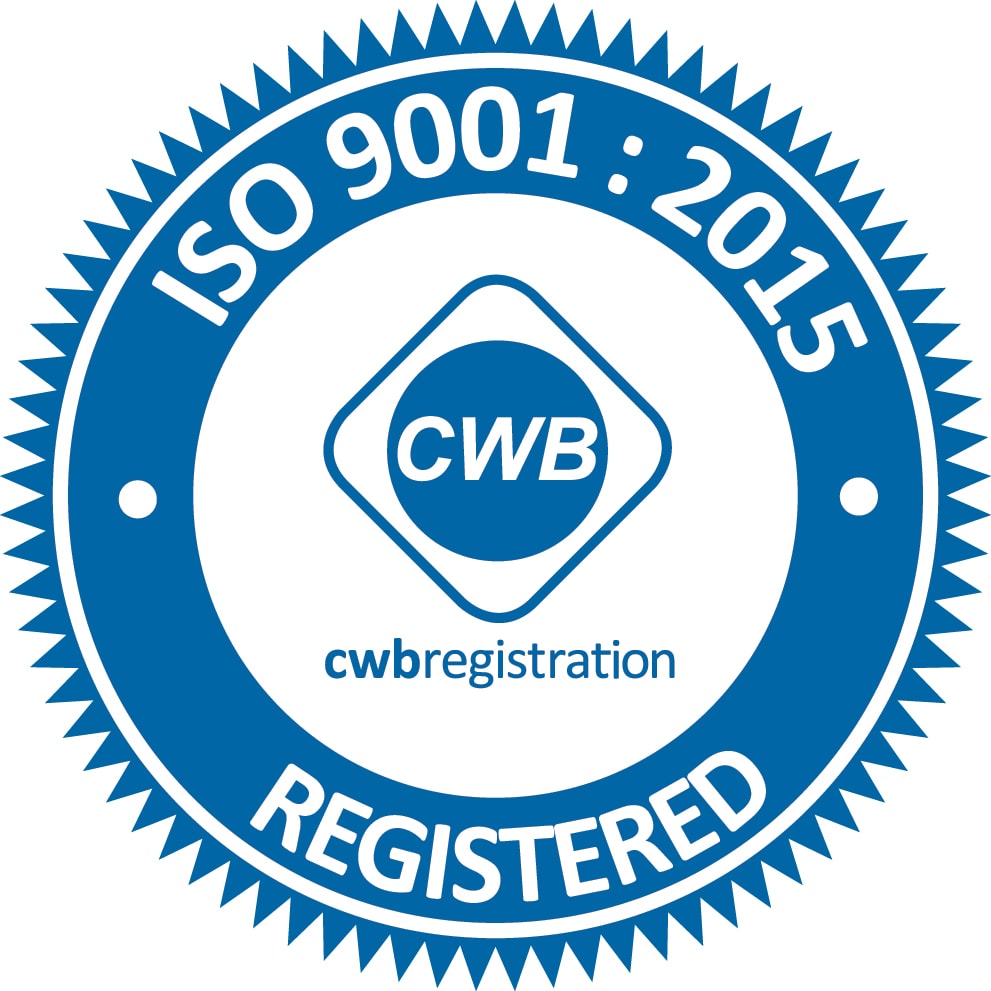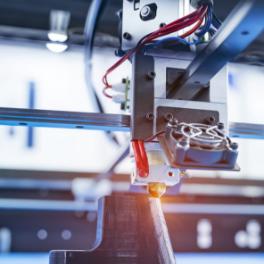Precision Machining: Achieving Excellence in Micro-Detail
Precision machining is a manufacturing process that involves removing material from a workpiece to achieve tight tolerances and accurate dimensions. It employs specialized tools and machinery to shape and finish components, ensuring conformity to design specifications. This method is crucial in creating various high-precision parts used in aerospace, automotive, and medical devices.
Since 2015, Pulsar Manufacturing has been a trusted partner for high-quality precision metal fabrication and machining! We have built a reputation as a forward-thinking company that produces high-quality components that meet and exceed industry requirements. Moreover, our facility is capable of handling projects of any size.
The Importance of Precision in Machining and Fabrication
Precision in machining and fabrication is vital across various industries, influencing end-product quality, performance, and reliability. Here are some of the reasons why:

Compliance With Industry Standards
Quality machining and fabrication are cornerstones for industry standards and regulations compliance. Industries such as aerospace operate under strict guidelines to ensure air travel safety. This precision guarantees that parts adhere to these standards, providing assurance crucial for regulatory approval and industry compliance.

Efficiency and Cost-Effectiveness
Precision in the machining process improves efficiency and cost-effectiveness by reducing material waste. It ensures that components are crafted with minimal deviation from the required dimensions. This reduces the consumption of raw materials and streamlines operations, ultimately contributing to sustainable manufacturing processes.

Interchangeability and Compatibility
Precise fabrication and machining fosters the production of components with consistent dimensions, enabling interchangeability and compatibility. For example, electronics and manufacturing industries heavily depend on standardized components seamlessly integrating into larger systems. This feature simplifies the assembly process and reduces the risk of errors.

Quality Assurance
Precision in machining is synonymous with quality assurance, ensuring that components are crafted to meet tight specifications and tolerances. This attention to detail is critical in industries like aerospace and medicine, where deviations can significantly impact the final product's performance. It also guarantees that each product aligns with the design parameters.

Principles of Precision Machining
Precision or advanced machining involves the removal of material from a workpiece to meet precise specifications. The first principle revolves around effective planning. Engineers meticulously design the components, considering the desired dimensions, tolerances, and surface finishes. This step is essential in ensuring that the machining process aligns perfectly with the intended outcome. The second principle emphasizes the importance of using specialized tools and fabrication techniques. High-precision machining demands equipment that can handle fine details and methods that minimize errors and produce smooth surfaces. The advent of advanced technologies, such as high-speed machining, has significantly contributed to achieving tighter tolerances and superior surface finishes. The third principle focuses on the role of technology, particularly computer numerical control (CNC) machines. These devices are programmed to adhere to the parameters established during the design phase. CNC machining improves precision and provides repeatability, ensuring that every component is similar. The integration of sensors and feedback systems further refines the process.Precision Machining Techniques and Technologies
Here are examples of the most commonly used advanced machining techniques and technologies:
- CNC machining: This precision technique uses programmable machines to execute precise movements and operations on a workpiece. It allows for complex and accurate machining processes, enhancing repeatability and efficiency.
- Electric discharge machining (EDM): This non-traditional process employs electrical discharges to shape and form materials. It is particularly useful for machining hard materials and creating intricate shapes.
- Five-axis machining: This method involves simultaneous movement of the cutting tool in five different axes. It allows for machining highly complex geometries and improves the efficiency of producing detailed components.
- Grinding: This technique uses abrasives to remove material and achieve tight surface tolerances. It is often utilized for finishing operations and producing components with fine surface finishes.
- High-speed machining (HSM): This process employs cutting tools at significantly higher speeds and feeds than traditional machining methods. HSM and advanced tool materials enable faster material removal while maintaining precision.
- Laser machining: This method uses focused laser beams to remove material. It is widely leveraged in various applications such as laser cutting, engraving, and welding, providing accuracy and minimal material distortion.
- Precision turning: This technique is commonly done on a lathe, rotating the workpiece while a cutting tool removes material to achieve accurate dimensions. It is essential for producing cylindrical items with tight tolerances.
- Thread grinding: This process creates accurate and uniform threads on components. It is commonly employed in producing threaded fasteners and critical threaded parts in the aerospace and automotive industries.
- Ultrasonic machining: This method uses ultrasonic vibrations to assist in material removal. It is ideal for machining hard and brittle materials with high precision, particularly in applications requiring complex details.
- Waterjet machining: This technique utilizes a high-pressure stream of water (sometimes with additional abrasives) to cut through materials. It is known for its precision in creating intricate shapes, especially in heat-sensitive objects.
Industries Leveraging Precision Machining
Advanced machining is renowned for its significance in creating high-quality, accurate, and reliable components. As such, it is widely used in the following industries:
- AerospaceHigh-quality machining is integral to the aerospace sector, where it is utilized for manufacturing critical components that contribute to the aircraft’s structural integrity. This includes producing intricate parts such as turbine blades, engine components, and structural elements. The aerospace industry also needs reliability, as the machined parts must withstand harsh conditions and adhere to stringent safety standards.
- Automotive ManufacturingPrecision machining is widely employed in the automotive industry to create vehicle performance and safety components. It is also used to meet the stringent standards for engine components, transmission parts, and essential elements. The demand for precision-machined parts in this sector shows the importance of dependability, efficiency, and adherence to quality requirements.
- Defense and MilitaryThe accuracy and reliability of precision-machined parts are crucial in ensuring the functionality and safety of defense systems. These components include those used in weaponry, radar systems, and other defense equipment. The stringent specifications required in this sector highlight the role of this machining technique in maintaining the highest standards for national security.
- Electronics and SemiconductorsThe electronics and semiconductor industry relies on this method to produce microelectronic components. These include intricate circuit boards, precision connectors, and semiconductor parts. The miniaturization trend also demands machined components to meet the requirements of smaller and more powerful electronic devices.
- EnergyIn the energy sector, including oil and gas, accurate machining is fundamental for crafting products for valves, turbines, and generator systems. These components must meet exact specifications to ensure the efficient and reliable operation of power infrastructures.
- Medical Device ManufacturingAdvanced machining plays a critical role in modern healthcare technology. Precision-machined components form the backbone of medical devices, ranging from implants to surgical instruments and diagnostic equipment. The healthcare industry relies on the precision and quality of these parts to ensure the effectiveness of medical treatments and interventions.
Other industries that utilize precision machining include the following:
- Dental technology
- Food and beverage processing
- Jewelry manufacturing
- Plastics manufacturing
- Precision engineering
- Railroad and transportation
- Research and development
- Telecommunications
- Textile manufacturing
- Tool and die-making
Choose Pulsar Manufacturing for High-Quality Machining Services
Pulsar Manufacturing excels at precisely creating and machining a wide range of materials! We work on projects of various sizes, offering our customers turnkey solutions that match their needs. We also have cutting-edge technologies and a competent team, showcasing our unwavering commitment to delivering outstanding client service.
today for all your fabrication and machining needs!
Contact Us
Choose Pulsar Manufacturing for High-Quality Machining Services
Pulsar Manufacturing excels at precisely creating and machining a wide range of materials! We work on projects of various sizes, offering our customers turnkey solutions that match their needs. We also have cutting-edge technologies and a competent team, showcasing our unwavering commitment to delivering outstanding client service.
today for all your fabrication and machining needs!